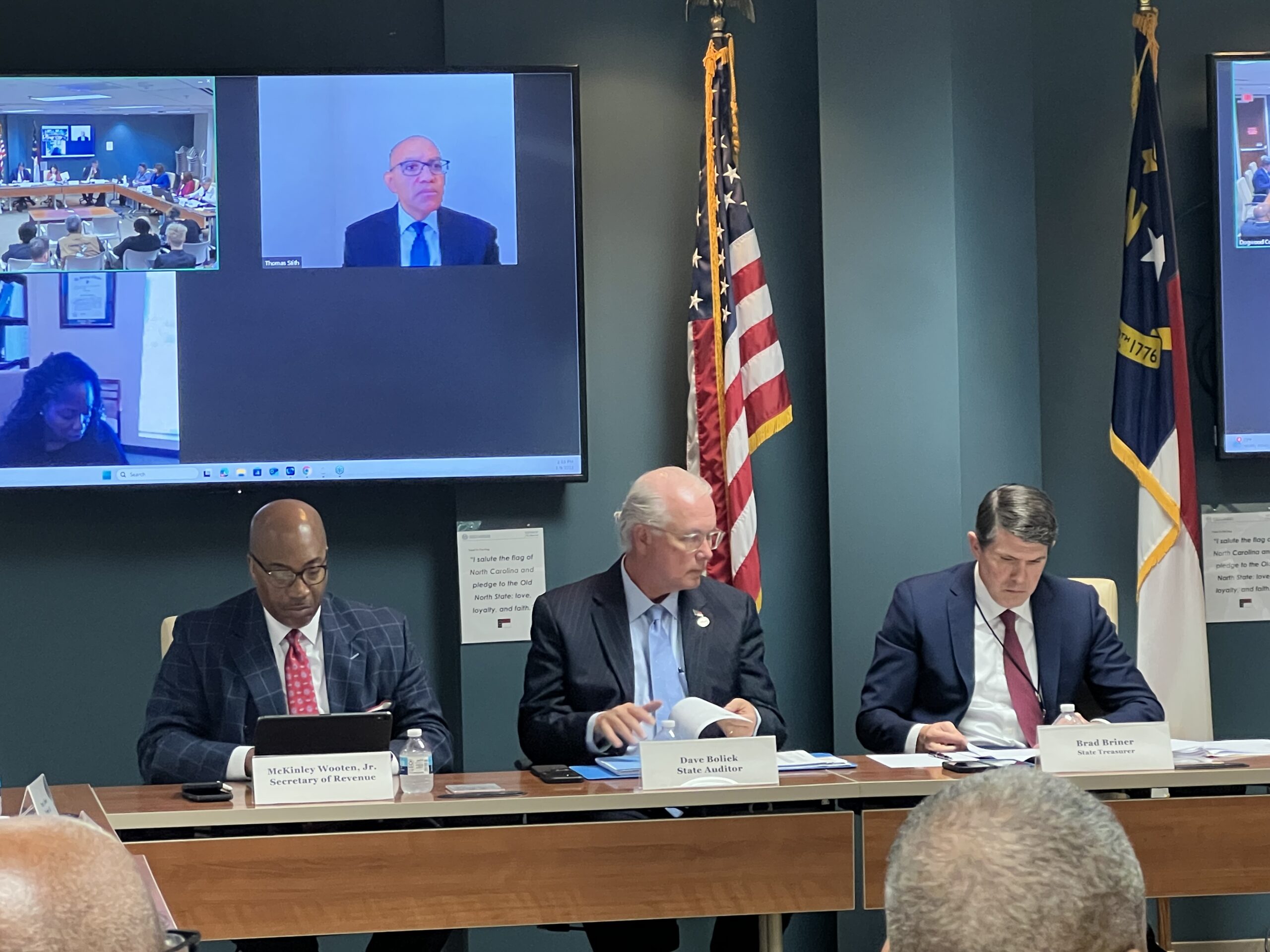By Jordan Meadows
Staff Writer
The North Carolina House Select Committee on Government Efficiency convened Tuesday morning in the NC General Assembly Legislative Building to discuss how the state can better manage taxpayer dollars and reduce wasteful spending. The meeting included testimony from State Auditor Dave Boliek and Deputy Secretary of Services David Elliott, with input from a bipartisan group of legislators.
The committee was formed earlier this year by House Speaker Rep. Destin Hall (R-Caldwell, Watauga), who stated in a January press release, “Unnecessary government bloat and waste hurt North Carolina taxpayers’ wallets and divert funds that could be used for core functions such as public safety and education.”
Key members of the committee include Rep. John Torbett (R-Gaston), Rep. Keith Kidwell (R-Beaufort, Dare, Hyde, Pamlico), Rep. Zack Hawkins (D-Durham), and Rep. Phil Rubin (D-Wake).
“What we’re trying to do is view audits, our results, and our recommendations through not the lens of what needs to be cut but from the lens of what is the return on investment that the taxpayers are getting from appropriations that flow from this body,” Boliek said.
He emphasized that the auditor’s role is to act as the investigative arm of the state, analyzing how public funds are used, how agencies are run, and how data can support better budget decisions. Boliek also noted that his office is actively monitoring state appropriations to enhance transparency.
Discussing regulatory disparities across the state, Boliek pointed out the stark contrast between rapidly growing regions and those still struggling economically.
“There’s developing NC, we’re sitting right here in the epicenter of growth in this state, Mecklenburg County, and the surrounding counties, and the Triad,” Boliek said.
He pointed to Rep. Shelly Willingham’s district that runs from Rocky Mount to the Albemarle Sound as a contrast: “Some communities never recovered from Hurricane Floyd in 1999. It’s those communities that need the other type of regulatory assistance: they may not need people to get out of the way, they may need people to come in and invest dollars to get a return on investment from their tax dollars.”
Rep. Zack Hawkins raised concerns about inefficiencies in the state’s public university and community college systems. North Carolina has 16 UNC campuses and 58 community colleges, many of which independently purchase software and technology systems.
“It is important that we don’t wait until the red flag is waving; that we have a systematic approach,” Hawkins said. “Why is each campus buying things individually when they all use some of the same processes?”
Hawkins argued that standardizing purchases across the system would reduce costs and eliminate redundancy: If one university buys a new set of upgraded software, and the others don’t, the state is spending more money by using funding for each university to buy an individual set, when Hawkins argues buying for all of them would lower the total cost and prevent additional future purchases.
Rep. Phil Rubin shifted the focus to staffing issues in the state’s prison system, particularly the low wages paid to correctional officers.
“Our Department of Adult Corrections does not pay enough. This leads to substantive issues about safety and recidivism, but it’s actually a waste of money because you’re spending money on dealing with this constant thrash of retraining new correctional officers because you can’t keep people—that costs money,” Rubin said.
He cited data showing that North Carolina ranks about 10th worst nationally for correctional officer salaries. However, he insisted that current pay rates are contributing to a cycle of high turnover, training costs, and unstaffed prison facilities.
“Our prisons are functioning on safety only; they’re not trying to rehabilitate anyone—they don’t have the staff. We can’t operate all the beds in our prisons, because we don’t have enough officers to keep them safe,” Rubin added.
David Elliott, the Deputy Secretary of Services, discussed the importance of fuel procurement for state operations. His office oversees contracts that bring in approximately $8 billion a year.
“Fuel is one of the most important commodities in North Carolina. They run the school buses to the ferries to our emergency responders to work in Western NC. It is essential; North Carolina does not function without fuel,” Elliott said.
His remarks highlighted the need for careful negotiation of fuel contracts to ensure that state operations remain uninterrupted and cost-effective.
As the committee continues its work, members aim to identify strategies for better resource allocation, cost-saving measures, and ways to ensure that all North Carolinians—regardless of region—see a return on their investment in government services.

